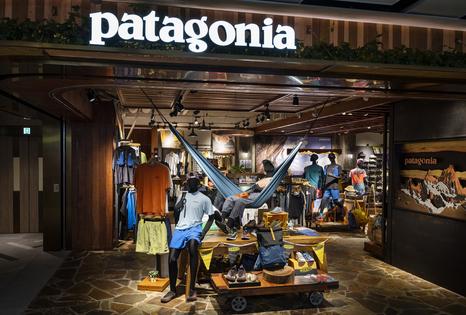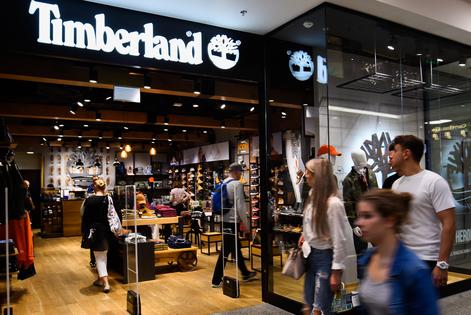Why Patagonia's purpose-driven business model is unlikely to spread
Published in Business News
Patagonia founder Yvon Chouinard, his wife, Malinda, and their two adult children no longer own the outdoor gear and apparel company. But based on my experience as a former executive who is now an adviser and lecturer focused on sustainability, I don’t expect many other U.S.-based companies to follow their lead.
Going forward, all of Patagonia’s profits, some US$100 million annually, will fund efforts to address climate change and advance wilderness preservation, the company announced on Sept. 14, 2022.
In a letter posted to the company’s site, Yvon Chouinard noted that “instead of going public” by selling Patagonia shares to investors, “you could say we’re ‘going purpose.’” The family has permanently transferred its ownership to a trust and a nonprofit.
By “purpose,” Chouinard means that the company’s profits will be used to protect the planet, as opposed to enriching shareholders. I see this choice as a valiant extension of Patagonia’s years of struggle to make capitalism more compatible with planetary sustainability. It also acknowledges the difficulty of trying to balance the interests of employees, customers and shareholders with the precarious state of the planet.
Chouinard stumbled into entrepreneurship as a “dirtbag” rock climber. Dissatisfied with the damage done to mountains by climbing equipment, he began to forge his own gear, initially doing all the work himself and then employing others. He remained a reluctant capitalist even as he founded Patagonia in 1973.
One example of this reluctance was a famous full-page ad his company ran in The New York Times on Black Friday in November 2011. Rather than lure shoppers with doorbuster sales and early opening hours, Patagonia implored its customers not to buy the company’s signature synthetic fleece jacket and to “buy less” of everything.
The ad lamented “the culture of consumption … [that] puts the economy of natural systems that support all life firmly in the red.”
Though Patagonia’s ad made a big splash, I didn’t find it surprising. Several years earlier I had visited Chouinard at Patagonia’s headquarters in Ventura, California.
At the time, I recall being wowed by the on-site day care center, the company’s pledge to donate 1% of its revenue to “the preservation and restoration of the natural environment” and the employees I witnessed heading out to surf in the middle of the day. In person, Chouinard seemed even more strident and less commercially motivated than I had imagined.
Perhaps ironically, given Patagonia’s seemingly anti-commercial posture, the company’s sales continued to grow, reaching more than an estimated $1 billion annually.
Seeing his name listed in Forbes’ exclusive list of the richest people made Chouinard recoil, saying “it really pissed me off.”
At the time of that California visit, I was serving as the chief operating officer of Timberland, an outdoor footwear, apparel and accessories company. Like Patagonia, it was privately controlled at the time – it has since become part of VF Corporation, a publicly traded outdoor-focused conglomerate.
Timberland’s model blended “commerce and justice” by combining the pursuit of profit with respect for global human rights, support for community service and a commitment to environmental stewardship.
Timberland was one of the first companies in the world to issue a corporate social responsibility report, paid for all employees to perform 40 hours’ community service and was one of the last companies to continue to manufacture millions of shoes and boots in its own factories.
Patagonia and Timberland have both earned acclaim and awards for their creative attempts to demonstrate that business can serve not just shareholders but also employees, local communities and other stakeholders.
Chouinard’s choice to “go purpose” seems to be a more dramatic version of a historic declaration issued by the Business Roundtable in August 2019.
The group represents close to 200 chief executives, including the leaders of JPMorgan Chase, Apple, BlackRock and Walmart. Appearing to abandon its longstanding commitment to shareholder primacy, it recast the purpose of a corporation.
“We share a fundamental commitment to all of our stakeholders,” including suppliers, employees, communities and the environment,“ the group declared in what many observers saw as a shift to a more balanced and responsible form of capitalism.
In my view, however, current systems, structures and incentives ensure that revenue and profit growth remain sacrosanct for companies. As a result, calls by well-intentioned advocates for more focus on social or environmental issues remain no match for a model governed by the pressure to deliver short-term results.
So far, business as usual remains the norm.
Unlike Chouinard’s decision to allocate 100% of Patagonia’s profits to environmental causes, the Business Roundtable’s 2019 statement is nonbinding and doesn’t compel companies to do anything differently.
Research published in 2020 seems to confirm that the roundtable’s new statement of purpose was mostly performative. Since its release, close to 100 of the companies that belong to the group have updated their governance guidelines, but very few had "made any changes to their statement of corporate purpose.”
In addition, the researchers examined 26 proposals that shareholders had introduced with the goal of implementing the roundtable’s statement. “Each company invariably opposed these proposals,” the study observed.
Chouinard’s remake of Patagonia’s governance acknowledges an important reality.
When presented with a situation in which social welfare and private profits align, companies will act sustainably. However, when circumstances pit public welfare against a company’s bottom line, executives typically side with their shareholders.
This does not make most executives evil; it makes them rational. They are responding to capitalism’s current system rules and incentives.
That’s why I find Chouinard’s imaginative act of moral courage uplifting.
At the same time, I believe that it would be naive and even harmful to expect many others to follow his example by voluntarily choosing a purpose other than the pursuit of profits.
Expecting businesses to do so would relieve government of its responsibility to set different rules to protect the environment and address climate change. I also agree with David Gelles, the New York Times reporter who broke the story about Patagonia’s new governance structure. As Gelles noted in a Vox interview, Chouinard’s family is “one of one.”
This article is republished from The Conversation, an independent nonprofit news site dedicated to sharing ideas from academic experts. It was written by: Ken Pucker, Tufts University. The Conversation has a variety of fascinating free newsletters.
Read more:
Patagonia’s founder has given his company away to fight climate change and advance conservation: 5 questions answered
How the climate crisis is transforming the meaning of ‘sustainability’ in business
Ken Pucker does not work for, consult, own shares in or receive funding from any company or organization that would benefit from this article, and has disclosed no relevant affiliations beyond their academic appointment.

















Comments